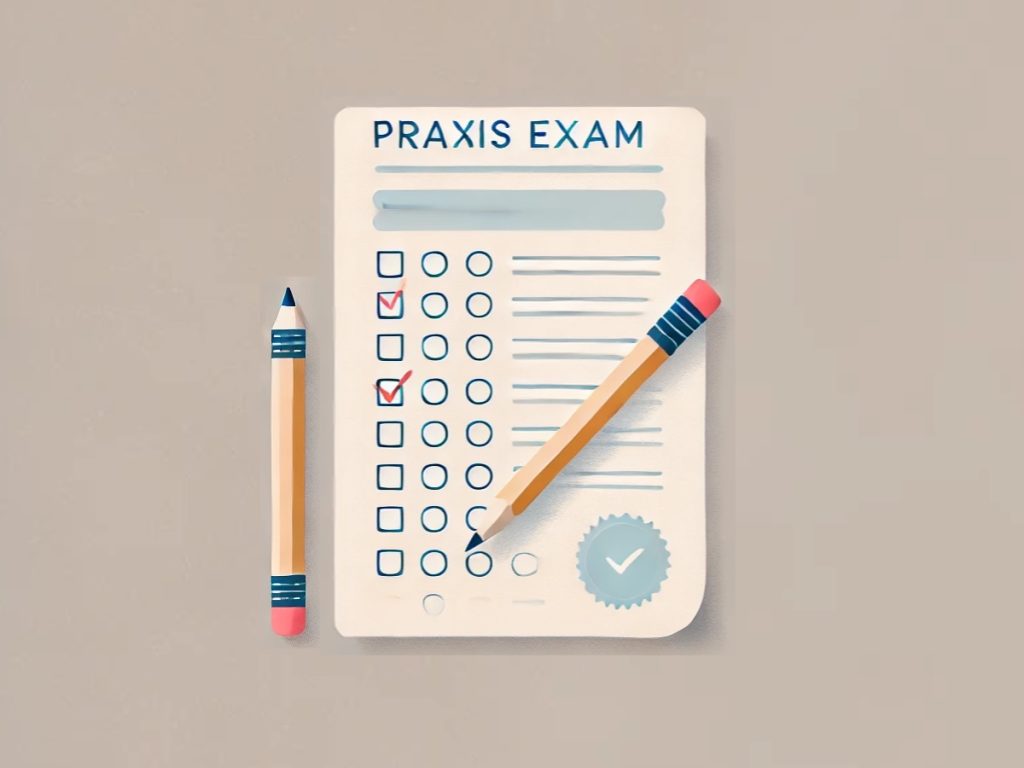Speech-Language Pathology Careers
Speech language pathologists (SLP) are the professionals who work to assist individuals with communication and swallowing disorders and thus play a very important role in the lives of their patients. From the first words of a child to the speech of an adult after a stroke, speech-language pathology is an essential field that contributes to the improvement of the quality of life. It is a career that is both scientific and compassionate – a combination of clinical knowledge and the wonderful chance to help people communicate. If you are thinking of pursuing a career in this industry, keep on reading to find out what SLPs do, how to become one, the income, and the characteristics that lead to success.
What Is a Speech-Language Pathology Career?
A career in speech pathology involves evaluating, diagnosing, and treating communication and swallowing disorders in people of all ages, from the toddler who is just learning to speak to the older adult who has had health conditions which impaired speech. SLPs, or speech therapists, help people work towards overcoming their problems in using speech sounds, language comprehension, voice quality, fluency and swallowing safety. Many speech pathologists have said that it is the most satisfying job because it is one of those jobs where one can actually see the result of the work being done. These professionals frequently cite examples of hearing a child being able to speak for the first time or an adult being able to speak after having had a stroke.
In practical terms, a day of a speech-language pathologist might involve conducting formal assessments to determine clients’ abilities. They may work on developing individualized therapy plans for clients’ particular needs, or showing exercises or techniques that can help improve speech or swallowing. Many times, the client and/or the client’s family or support system are advised on how to continue the therapy at home, which is crucial for the client’s overall development. SLPs also maintain extensive documentation of each client’s progress, and are frequent collaborators with other professionals—teachers, physicians, and psychologists—to give comprehensive care. The goal of an SLP is the same regardless of the work environment – school, hospital, rehabilitation center, or private clinic – to help people with communication and thus, their quality of life.
Popular Speech-Language Pathology Careers
Speech Pathologist
Assisting people to discover their vocal abilities stands as one of the most valuable actions you can provide. Every day speech-language pathologists (SLPs) focus on helping people develop
Pediatric SLP
Pediatric Speech-Language Pathologists (SLPs) work assisting children with their communication and swallowing problems. These professionals evaluate and treat speech and language disorders
Medical SLP
Medical speech pathologists (SLPs) perform vital work which brings satisfaction to healthcare practice. Patients who have suffered illness or injury can recover their communication skills
School SLP
The role of a school SLP extends beyond speech treatment because these professionals function as educators who develop children’s ability to speak with clarity and confidence while maintaining
SLPA
The main responsibilities of an SLPA (Speech-Language Pathologist Assistant) include assisting a licensed Speech-Language Pathologist (SLP) in providing therapy and communication services.
Forensic SLP
The process to become a forensic speech-language pathologist requires establishing a solid foundation of speech-language pathology knowledge followed by specialization in legal or criminal justice
| Industry | Employment | % Of Industry Employment | Hourly Mean Wage | Annual Mean Wage |
|---|---|---|---|---|
| Elementary and Secondary Schools | 67,640 | 0.79 | $ 40.25 | $ 83,720 |
| Offices of Other Health Practitioners | 42,750 | 3.75 | $ 46.41 | $ 96,540 |
| General Medical and Surgical Hospitals | 19,290 | 0.34 | $ 47.50 | $ 98,790 |
| Nursing Care Facilities (Skilled Nursing Facilities) | 5,770 | 0.42 | $ 52.23 | $ 108,640 |
| Home Health Care Services | 5,660 | 0.35 | $ 58.37 | $ 121,410 |
*According to BLS
Do I Need a License to Become a Speech-Language Pathologist?
In the United States one must have a license to practice as a speech pathologist in every state to make sure that SLPs have the minimum education and training to give proper and safe therapy. Although the specific entry requirements are different from state to state, the general pattern is to hold a master’s degree in speech-language pathology from an accredited program, to complete lengthy supervised clinical experience during graduate study and as part of a clinical fellowship, and to pass a national exam, often the Praxis in Speech Language Pathology. Many SLPs also choose to achieve the Certificate of Clinical Competence (CCC-SLP) from the American Speech–Language–Hearing Association (ASHA), which means they have met the national standards for education, clinical competency and professional ethics.
When the degree, fellowship and examination requirements have been met, applicants can then apply for state licensure. The process of maintaining that license can include satisfying continuing education requirements, which are a way to ensure that professionals stay current with the latest research and therapeutic interventions. Those working in public schools may also need to hold extra credentials that are specific to schools, like teaching certifications. All in all, licensing ensures that SLPs have the appropriate educational qualifications and practical skills to support clients and sustain the integrity of the profession.
How Much Can I Earn as an SLP?
Speech language pathologists are well compensated for their work and wages have been rising alongside the increasing need for such experts. The U.S. Bureau of Labor Statistics (BLS) reports that the median annual salary for speech pathologists was $89,290 as of May 2023. That means SLPs are in the 50th percentile, so half make more and half make less. Entry level or lower paying positions, such as some schools, can start at $60k, while experienced SLPs or those working in high demand fields can make six figures. In fact, the top 10% of speech-language pathologists make over $129,000 per year.
Location and type of employment are key factors that affect salaries. For instance, SLPs who work in healthcare will earn more than those who work in schools. In May 2023, speech-language pathologists working in nursing care facilities had a median annual salary of about $105,000, while those working in hospitals had a median salary of around $100,000. The median salary in educational institutions (schools) was $80,000 closer to than other industries. Additionally, some states provide higher average wages because of the cost of living and scarcity of experts. At the time of writing, Hawaii, California, the District of Columbia, New York, and New Jersey were the top five highest paying states for SLPs, with annual salaries in the six figures on average. Here’s a table that shows the average annual salaries for speech pathologists in these highest paying states according to BLS data:
| State | Employment | Hourly Mean Wage | Annual Mean Wage |
|---|---|---|---|
| California | 17,270 | $ 53.86 | $ 112,030 |
| District of Columbia | 420 | $ 53.42 | $ 111,110 |
| Colorado | 4,070 | $ 51.82 | $ 107,780 |
| Hawaii | 130 | $ 51.34 | $ 106,790 |
| New Jersey | 5,940 | $ 49.43 | $ 102,820 |
| Industry | Employment | Hourly Mean Wage | Annual Mean Wage |
|---|---|---|---|
| Civic and Social Organizations | 8 | $ 62.80 | $ 130,620 |
| Home Health Care Services | 5,660 | $ 58.37 | $ 121,410 |
| Management of Companies and Enterprises | 670 | $ 53.90 | $ 112,110 |
| Child Care Services | 1,240 | $ 52.46 | $ 109,110 |
| Nursing Care Facilities (Skilled Nursing Facilities) | 5,770 | $ 52.23 | $ 108,640 |
*Salaries reflect May 2023 data from the BLS (annual mean wages).*
It should also be noted that even in other states SLPs earn more than the national average wage for all occupations. Another benefit, besides salary, is job stability: speech-language pathology grows faster than average. The employment of speech pathologists is expected to increase by 18% from 2023 through 2033, considerably faster than many other professions. This strong job outlook is being driven by several factors. The aging of the population, especially the Baby Boomer population, is increasing the frequency of health conditions such as strokes or dementia that can lead to speech and language impairments and thus increasing the demand for SLP services in healthcare. However, there is also more awareness and earlier identification of speech and language disorders in children (e.g., autism-related communication problems, developmental speech delays), which leads schools and clinics to hire more speech pathologists for early intervention to help children benefit from therapy, thus increasing the demand. In short, SLP careers provide not only good pay but also plenty of job opportunities, which makes it a good choice for long-term growth.
Skills & Traits Needed for SLP Careers
Speech language pathologists need good communication skills to explain what is often quite technical to the client and their families in simple and encouraging language. However, the ability to listen is also crucial and that is why they have to listen for slight changes in speech and language that may indicate improvement or require change in the therapy approach. Empathy and patience are also very important in this case as well. People with communication disorders may get frustrated or embarrassed by their condition, and the therapy may be long and arduous with limited progress. It is important for the therapist to be friendly and approachable to build the patient’s confidence and encourage them to try and persist.
This profession also requires strong analytical skills and problem solving skills. Every client is different and good SLPs are able to find out the best solution by arranging the assessments, observations and the current research. Record keeping is another essential part of this job, and the details are well documented and the progress of the client is well documented as well. It is important to pay attention to the details of a client’s speech or swallowing abilities because even the slightest improvement is important, and missing a progress report is not an option.
Interpersonal skills and willingness to work in a team are also essential. Speech-Language pathologists share their day with teachers, doctors, psychologists and other professionals to give an overall contribution. This team-based approach also pertains to the family or caregivers who are usually the key implementers of the therapy in the child’s everyday life. In addition to collaboration, interest in improving people’s lives and interest in the development of speech and language development contributes to the identity of SLPs and keeps them motivated in a profession that is at the same time scientific and people oriented.
Related Articles

Speech Pathologist vs Speech Therapist: What’s the Difference?
If you have ever been researching speech-language pathology careers and come across the words ‘speech pathologist’ and ‘speech therapist’, you might wonder if they are

What is the Praxis Exam for Speech Language Pathology?
If you are pursuing the position of a speech-language pathologist, then you may have heard of the Praxis exam from your professors, classmates, or even

What is the Speech-Language Pathology Interstate Compact?
If you are interested in pursuing a career in SLP and have been researching licensing requirements or are simply interested in learning more about SLP
